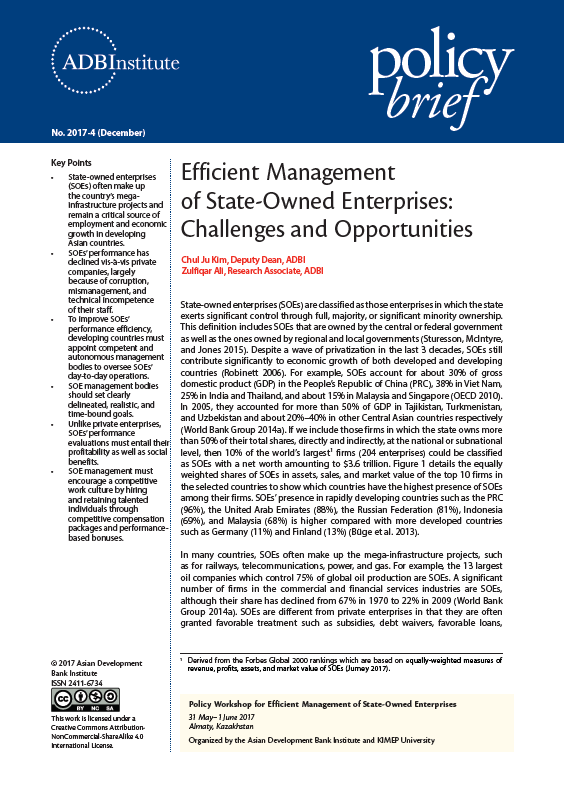Efficient Management of State-Owned Enterprises: Challenges and Opportunities

State-owned Enterprises (SOEs) remain a critical source of employment, public service provision, and socioeconomic development in most developing Asian countries. However, SOEs’ efficiency has been severely undermined by overlaps in their ownership and management structures in most developing countries. Moreover, the lack of a centralized and credible database on SOEs in some countries has made monitoring and evaluating their performance even harder. Therefore, to improve SOE performance, developing countries in Asia must ensure separation between the ownership and management functions of SOEs. Second, they must chart clear and quantifiable short- and long term goals, and appoint autonomous and competent management to strategize how to achieve these goals. Third, SOE management must institute transparent and independent monitoring and evaluation mechanisms to share regular performance reports of SOEs with all of their key shareholders and suggest improvements whenever needed. Finally, SOEs must attract qualified and talented people to join their ranks with competitive salary packages. These employees should be rewarded for better performance and penalized for chronic underperformance to establish a professionally competitive work culture to improve SOEs’ efficiency and profitability.



